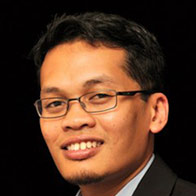JULY 23 — Tariq Ramadan, the European Muslim intellectual and Oxford professor, was recently in Malaysia for various speaking engagements. He is the maternal grandson of Muslim Brotherhood founder Hassan al-Banna. His father, Said Ramadan, was exiled by Gamal Abdel Nasser to Switzerland.
Tariq is probably one of the world’s best-known Western Muslim intellectuals. He is a graduate of the University of Geneva and was also trained intensively by classical Islamic scholars at the University of Al-Azhar.
I encountered Tariq when I was a member of the Federation of Students Islamic Societies (FOSIS) in the UK. He was a regular speaker at its events and I was soon reading several of his books. He’s a controversial figure but I think there’s a lot of value in his work, especially for Muslims in Malaysia.
In “Western Muslims and the Future of Islam”, Tariq argued that the experience of Muslims in the West has given rise to the phenomenon of “Western Muslims” — faithful to Islam yet fully-integrated members of modern society.
Scholars of this persuasion actually span across the doctrinal spectrum of Islam — including Sheikh Hamza Yusuf, Imam Zaid Shakir, Dr Ingrid Mattson, Imam Suhaib Webb, Sheikh Abdul Hakim Murad and Malaysia’s own Sheikh Datuk Dr Muhammad Afifi al-Akiti — and are influential not only in the West but amongst the global ummah.
Whilst not all of them have been as successfully integrated, the example of Western Muslims has strong implications for the rest of the Muslim world. As Tariq himself mentioned in his talk hosted by Datuk Seri Anwar Ibrahim a few days ago, it’s a sign that Muslims at the periphery of the Muslim world — including Southeast Asia, South Asia and the West — can lead the faith and engage in dialogue with other civilisations.
It’s a sign that our faith is not antithetical to democracy, human rights and pluralism, and indeed can provide powerful moral feedback to prefect these institutions in a world that has lost its moral compass.
This discourse is very relevant in Malaysia. As an imperfect democracy and multiracial society, we are grappling with balancing faith, freedom and fairness.
For so long, the battle over Islam in Malaysia has been between old elite secular-nationalists (i.e. Umno and its surrogates) who see Islam as a backward force, something to be avoided altogether or used as tool to further their own political ambitions. On the other side however was a religious movement which nihilistically argued that to be faithful to Islam meant rejecting modernity and independent thought.
Neither of these positions is particularly helpful for Muslims trying to make sense of a rapidly changing world and it seemed increasingly impossible to strike a “middle ground” between these two extremes.
But the example of the Western Muslims shows that there is an alternative to these approaches. Indeed, they are the strongest proponents for liberty in both the West and the Rest. How did this paradigm shift occur?
One imagines that this was a reaction against what occurred during the height of the Islamic revival, when the critique on the West was at its harshest. It was ironic that such criticism increasingly came from Muslims who migrated to the West due to persecution from their own countries.
As I wrote in my book “Coming of Age”:
“This raises a pertinent question, one that a traditional Muslim scholar asked me: isn’t there a value to democracy, fundamental freedoms and an open environment which allows all groups from the mainstream to the lunatic fringes to express themselves? Doesn’t it prove something that many Muslim activists go to the West to learn, work, live and more importantly promote what they proudly term as their anti-Western agenda?”
After all, if Muslims in the West spoke of human rights to protect them as minorities, what about the human rights of minorities in Muslim countries? It was a consciousness of the need to resolve this contradiction and the imperative for Muslims to stand up to injustice everywhere, every time that probably shaped the discourse of Western Muslims.
In the Malaysian context, isn’t it strange that we should lament the oppression of Muslims all over the world but seem apathetic or even justify the discrimination against non-Malays in Malaysia, or even the injustices within the ummah?
Make no mistake; freedom and openness are now the watchwords of the Muslim world, even in the Middle East, as evidenced by the “Arab Awakening”, which is also the title of another book by Tariq. He warns, however, of being too optimistic about the developments of the Awakening — at the time of writing it seemed that only Tunisia had successfully undergone a democratic transition.
Nevertheless, in the periphery of the Muslim world, the experience of Turkey and Indonesia has proven that Islam and democracy are compatible, and indeed symbiotic. The challenge for Malaysia is to affect a similar paradigm shift, to remain faithful to our Islamic tradition and still protect fundamental freedoms.
The question is how we might bring this discourse to the Muslim establishment and masses in Malaysia which traditionally have always been far more comfortable with more conservative understandings of Islam. Ramadan has always been a time of reflection and striving for Muslims.
This year, Muslims in Malaysia ought to think about where we’re going as a community, but also whether our faith can be something that moves Malaysia forward or hold it back and rend it apart.
* The views expressed here are the personal opinion of the columnist.


Comments
Please refrain from nicknames or comments of a racist, sexist, personal, vulgar or derogatory nature, or you may risk being blocked from commenting in our website. We encourage commenters to use their real names as their username. As comments are moderated, they may not appear immediately or even on the same day you posted them. We also reserve the right to delete off-topic comments